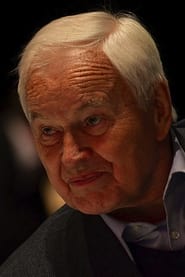

DDR - die entsorgte Republik(2019)
Movie: DDR - die entsorgte Republik
Top 5 Billed Cast
Narrator

DDR - die entsorgte Republik
HomePage
Overview
Release Date
2019-10-02
Average
6
Rating:
3.0 startsTagline
Genres
Languages:
DeutschKeywords
Recommendations Movies
 7.6
7.6Naruto 20th Anniversary - Road of Naruto(ja)
Promotional video celebrating 20 years of the Naruto animation project.
 7.2
7.2Assassination Classroom: Graduation(ja)
Story continues with the students' own conflicts, Koro Sensei’s identity and the fate of the world. The time limit for assassination is approaching.
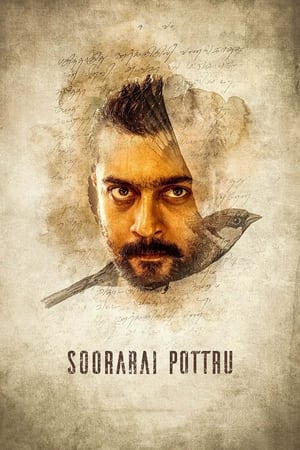 7.7
7.7Soorarai Pottru(ta)
Nedumaaran Rajangam "Maara" sets out to make the common man fly and in the process takes on the world's most capital intensive industry and several enemies who stand in his way.
 5.3
5.3Contracted: Phase II(en)
Picking up directly where the previous film left off, the story follows Riley, one of the last people to come in contact with Samantha, as he scrambles to track down those responsible for the outbreak before the highly contagious disease not only consumes his body, but the world as we know it.
 7.8
7.8The Dude in Me(ko)
Dong-hyun is a high school student. One day, he falls from the rooftop and bumps into Pan-soo who is a passerby. Pan-soo is a member of a criminal organization. When the two men wake up in the hospital, they discover that they have switched bodies.
 8.1
8.1LEGO Scooby-Doo! Knight Time Terror(en)
Mystery Inc. is summoned to investigate occurrences in a haunted villa, where a black knight terrorizes anybody who tries to get close to treasure hidden by the former owner of the building.
Little Pond in Main Street(ko)
Street vendors in Korea are almost like a national institution, they are so widespread and relied upon. In Little Pond in Main Street a group of vendors band together to create a community radio station but come into conflict with other groups, as well as the government trying to shut them down.
 6.5
6.5Cleaner(en)
When a group of radical activists take over an energy company's annual gala, seizing 300 hostages, an ex-soldier turned window cleaner suspended 50 storeys up on the outside of the building must save those trapped inside, including her younger brother.
 6.2
6.2The Woman in the Yard(en)
In the aftermath of her husband's death, widow Ramona's struggle to raise her two kids is hindered by the arrival of a mysterious woman with supernatural abilities.
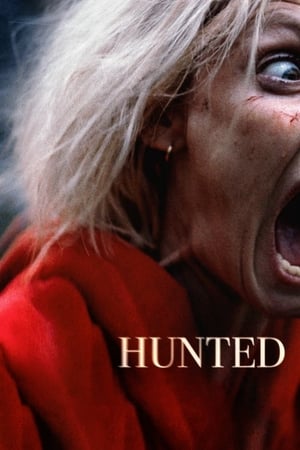 6.2
6.2Hunted(en)
A woman flees two serial killers who are hot on her heels in a forest.
 7.5
7.5Naruto OVA 7: Naruto, the Genie, and the Three Wishes, Believe It!(ja)
Naruto discovers a genie's bottle while he and the gang are at a genin grill party. When everyone finds out about the genie's ability to grant wishes, the ultimate chase begins.
 6.3
6.3Cold Prey II(no)
After surviving the events in the Jotunheimen mountains in which four of her friends were murdered, the badly injured Jannicke is brought to the local hospital. But when she wakes up, the building is dark and deserted... and she soon realizes that her nightmare isn’t over yet.
 7.2
7.2Romance Doll(ja)
It was a pre-destined love and marriage for Sonoko and Tetsuo. They tied the knot and became husband and wife no questions asked. All is well then. Well, perhaps not. Each holds a secret that even the binds of matrimony cannot untie.
 6.8
6.8Three Bedrooms, One Corpse: An Aurora Teagarden Mystery(en)
While Aurora "Roe" Teagarden searches for her piece of the American dream, she decides to test the waters of the family business - real estate sales. Only thing is there's a dead body in the first house she shows. When a second body shows up in another home, Roe realizes there's more to real estate than she thought.
 6.9
6.9Love Lesson(ko)
Korea's most popular song writer Hee-soo runs into a nineteen-year-old boy in the elevator. Hee-soo is inspired by a new song watching him shake at her figure. She starts to tell him about women under the excuse that she's teaching him music. They fall for each other but things get complicated when her life teacher, Joon-ho who taught her about life and music comes back.
 7.5
7.5Puella Magi Madoka Magica the Movie Part II: Eternal(ja)
As the young girls have discovered the truth about the cruel fate of a magical girl, one magical girl after another is destroyed. Throughout it all, there is one magical girl who continues to fight alone - Homura Akemi. Puella Magi Madoka Magica the Movie Part II: Eternal is a retelling of the second half of the TV anime series.
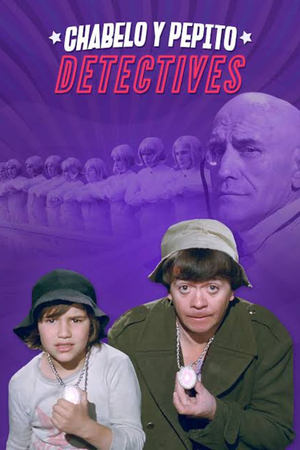 7.8
7.8Chabelo y Pepito detectives(es)
A commanding friend Pepito and Chabelo ask them to help uncover a gang who kidnaps children. They accept and are out to steal to join the band. Whenthey find that the band mesmerizes children with toys and then the kids are controlled by young boys and they controlled in turn by strangers with long hair and blue eyes.
 5.5
5.5500 MPH Storm(en)
When an energy experiment goes haywire, a rash of massive hurricanes rips across North America. A high school science teacher must get his family to safety before the hurricanes merge, creating a "hypercane" with the power to wipe the US off the map.
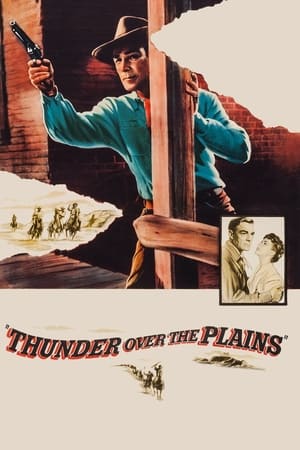 5.4
5.4Thunder Over the Plains(en)
Set in 1869, after the Civil War, Texas had not yet been readmitted to the Union and carpetbaggers, hiding behind the legal protection of the Union Army of occupation, had taken over the state. Federal Captain Porter, a Texan, has to carry out orders against his own people. He brings in the rebel leader Ben Westman whom he knows is innocent of a murder that he is accused of. In trying to prove his innocence, Porter himself becomes a wanted man.
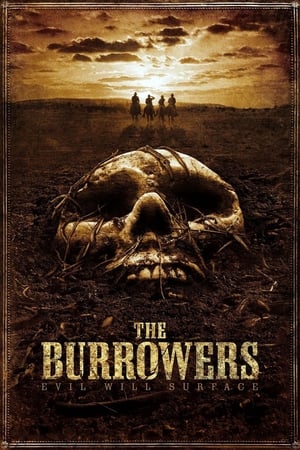 5.9
5.9The Burrowers(en)
It is 1879 in the Dakota Territories, a band of men who set out to find and recover a family of settlers that has mysteriously vanished from their home. Expecting the offenders to be a band of fierce natives, but they soon discover that the real enemy stalks them from below.
Similar Movies
A Hero's Death(de)
It was the biggest escape in the history of the Berlin Wall: in one historic night of October 1964, 57 East-Berliners try their luck through a tunnel into West Berlin. Just before the last few reach the other side, the East German border guards notice the escape and open fire. Remarkably, all the refugees and their escape agents make it out of the tunnel unscathed, but one border guard is dead: 21-year-old officer Egon Schultz.
 6.7
6.7Caligari: When Horror Came to Cinema(de)
On February 26, 1920, Robert Wiene's world-famous film The Cabinet of Dr. Caligari premiered at the Marmorhaus in Berlin. To this day, it is considered a manifesto of German expressionism; a legend of cinema and a key work to understand the nature of the Weimar Republic and the constant political turmoil in which a divided society lived after the end of the First World War.
 7.3
7.3The Red Elvis(de)
A documentary on the late American entertainer Dean Reed, who became a huge star in East Germany after settling there in 1973.
 0.0
0.0In Syrien auf Montage(de)
The film is a reportage showing the help of workers from the GDR in the industrial reconstruction of Syria. We witness the friendly relationship between workers from both countries, who are jointly involved in the construction of the cotton spinning mill in Homs. In impressive pictures the exoticism of the environment and the mentality of the Syrian hosts is shown. At the same time it becomes clear that the workers from the GDR become 'ambassadors of the GDR' through their collegial behaviour and good work.
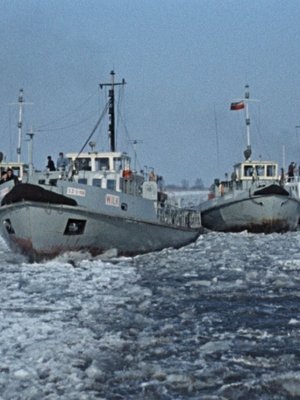 10.0
10.0Auf der Oder(de)
Documentary reports on the annual icing of the Oder in the 160-kilometer border area between the GDR and the People's Republic of Poland. Icebreakers from both countries with experienced skippers join forces to make the international waterway between Frankfurt and Szczecin navigable again. Everyone works hard as a team and even a broken-down ship cannot stop them from achieving their goal. A look back at the winter of 1947 with its flooding shows what the freezing of the river and the subsequent thaw can do if the ice floes are not drained into the Baltic Sea via Lake Dammsch in good time. The skippers from both countries have known each other for years and trust each other; the camaraderie that has developed on the Oder unites the people, they control the river in winter for the common benefit of all.
 8.0
8.0From Us To Me / Vom Wir zum Ich(de)
This first co-production between the GDR and Great Britain is intended to contribute to an understanding of the situation and attitudes of millions of working people in opposing social orders. Using the example of shipyard workers, fishermen, the brigade and family of a trade union active cook and unemployed person of various ages and professions in Newcastle on the one hand and a brigade of crane operators of the Warnowwerft and fishermen of the Warnemünde cooperative on the other hand, insights into the way of life and attitudes of people of our time are to be conveyed.
Ich will da sein - Jenny Gröllmann(de)
The film accompanies Jenny Gröllmann, a German actress, during the last two years of her life.
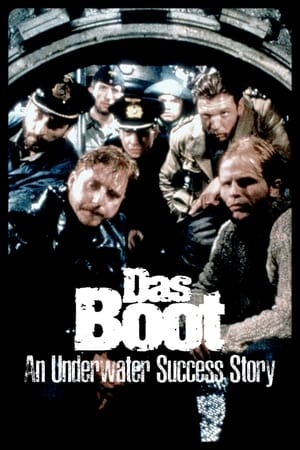 6.6
6.6Das Boot Revisited: An Underwater Success Story(de)
In 1981, a film about the misadventures of a German U-boat crew in 1941 becomes a worldwide hit almost four decades after the end of the World War II. Millions of viewers worldwide make Das Boot the most internationally successful German film of all time. But due to disputes over the script, accidents on the set, and voices accusing the makers of glorifying the war, the project was many times on the verge of being cancelled.
 7.0
7.0Lenin kam nur bis Lüdenscheid - Meine kleine deutsche Revolution(de)
The free, almost naive view from the perspective of a child puts the "68ers" in a new, illuminating light in the anniversary year 2008. The film is a provocative reckoning with the ideological upbringing that seemed so progressive and yet was suffocated by the children's desire to finally grow up. With an ironic eye and a feuilletonistic style, author Richard David Precht and Cologne documentary film director André Schäfer trace a childhood in the West German provinces - and place the major events of those years in completely different, smaller and very private contexts.
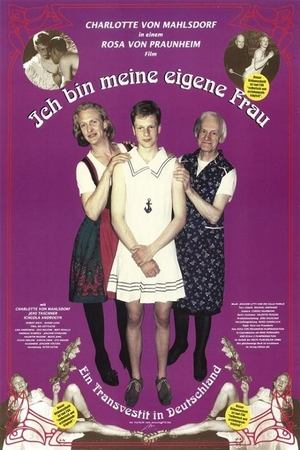 4.3
4.3I Am My Own Woman(de)
The life story of Charlotte von Mahlsdorf, who survived the Nazi reign as a trans woman and helped start the German gay liberation movement. Documentary with some dramatized scenes. Two actors play the young and middle aged Charlotte and she plays herself in the later years.
 3.2
3.2Großes Kino made in DDR(de)
In 2016, DEFA celebrates its 70th anniversary: the film embarks on a journey into the exciting film history of the GDR. In a comprehensive kaleidoscope, the importance of DEFA productions is illuminated, the relevance of the films as propaganda productions for the GDR, which socio-political themes were in the foreground, but also which heroes DEFA brought to the screen and celebrated as people from the people.
 7.0
7.0Fotoshooting DDR - Bilder zwischen Propaganda und Alltag(de)
Life in the GDR was not only documented on behalf of the state, but also by photographic artists and journalists. The documentary goes on a journey through time with some of them and shows little-known aspects of the GDR from its foundation to the fall of the Wall. Photographers in the GDR had a surprising amount of freedom; there was no explicit censorship of images. This allowed them to make visible what the state wanted to hide. This documentary presents two photographers who observed life in the GDR and whose work has been rediscovered in recent years.
 6.0
6.0Becoming Black(de)
In the 1960s, a white couple living in East Germany tells their dark-skinned child that her skin color is merely a coincidence. As a teenager, she accidentally discovers the truth. Years before, a group of African men came to study in a village nearby. Sigrid, an East German woman, fell in love with Lucien from Togo and became pregnant. But she was already married to Armin. The child is Togolese-East German filmmaker Ines Johnson-Spain. In interviews with Armin and others from her childhood years, she tracks the astonishing strategies of denial her parents, striving for normality, developed following her birth. What sounds like fieldwork about social dislocation becomes an autobiographical essay film and a reflection on themes such as identity, social norms and family ties, viewed from a very personal perspective.
 8.0
8.0Last to Know(de)
In the documentary Last To Know political prisoners, sent to jail for openly opposing the East German regime that existed until the German reunification in 1990, talk about their times of trial and their lives today. Neither they, nor their families have come to terms with what happened.
 6.8
6.8Merkel(de)
Driven by extensive archive material and interviews with those who know her, this is the astonishing story of how a triple outsider – a woman, a scientist, and an East German – became the de facto leader of the “Free World”, told for the first time for an international audience.



